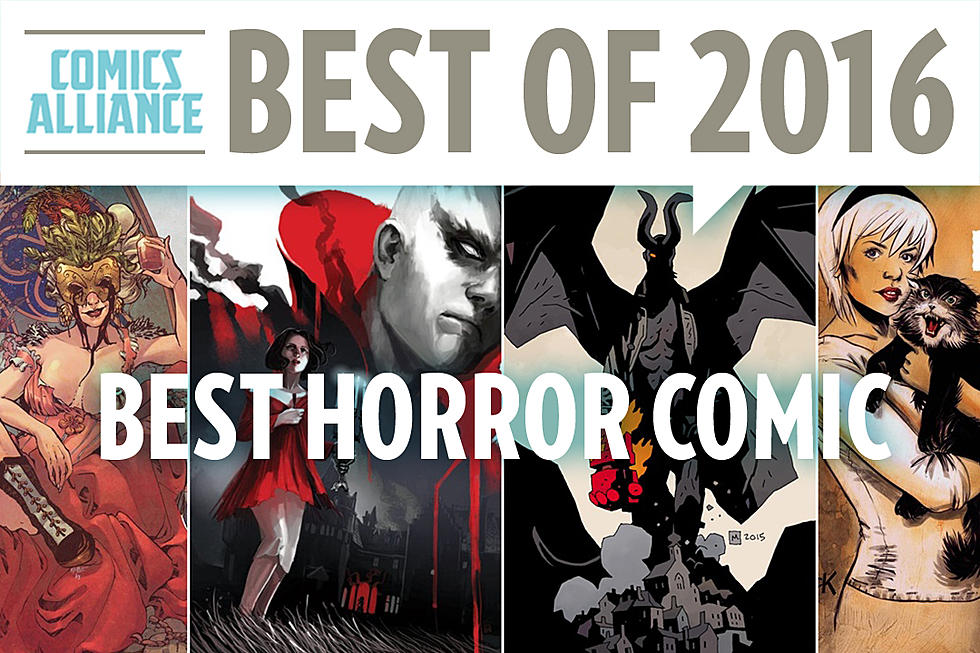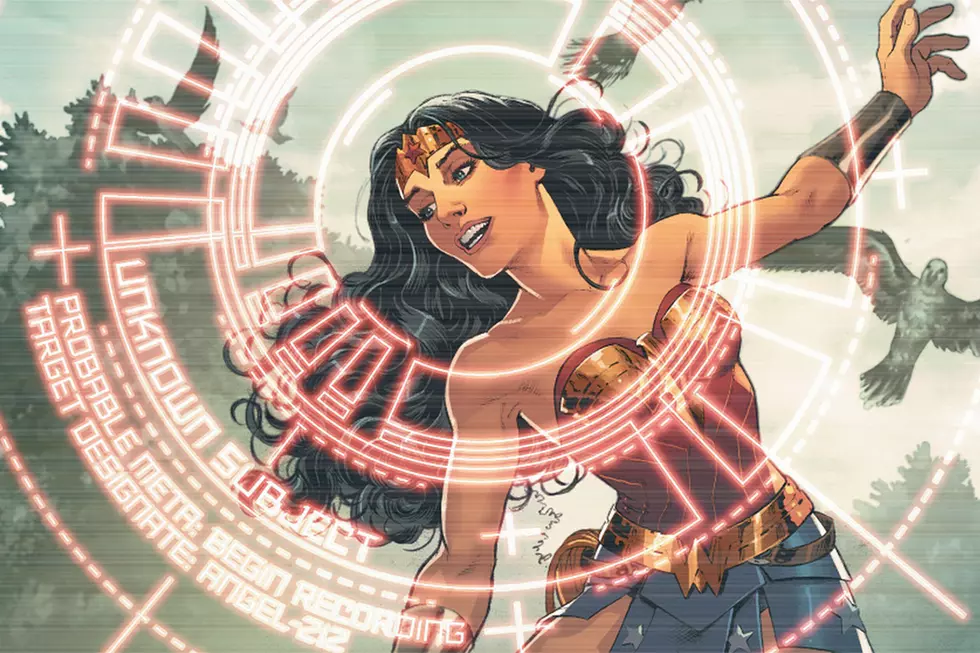
‘Dragon Age: Magekiller’ #1 Is The Adventure That Thedas Demands
I think I can pinpoint the moment that I fell in love with the backstory of the Dragon Age games as my realization that Thedas, the name of the world in which all your adventures were taking place, was really just an acronym for "The Dragon Age Setting," which just happened to sound like a nifty name for a fantasy world. Even beyond that, though, I love the world-building that goes on in those games, and the way that it's weaved into a story that feels like it has a vast history full of cultures and religions that are engaging and vibrant, with bits and pieces that are even more interesting than the main storyline sometimes.
But as much as I love reading all that stuff in the game itself, and as much as I'd prefer it if there was a way to read all that stuff without having to stop in the middle of my dungeon crawling and page through whatever ancient tome I just picked up, it's not the kind of thing that I thought I'd be into reading, say, an entire novel about. It was going to take a lot to get me to follow it from the game into another medium, which is probably why Dark Horse decided to give the new Dragon Age: Magekiller comic to the creative team of Greg Rucka and Carmen Carnero, and ended up with a comic that's unsurprisingly pretty great.
The thing that really grabs me about Dragon Age, aside from the fact that the creators somehow figured out how to have Tolkien Elves and Santa Claus Elves at the same time, is that there's so much there to work with. If you pay attention to the story that unfolds over the course of those games, you can see the careful construction of a world where things feel real because there's not always a definitive answer about who's right.
I mean, yes, there are plenty of quests that can be neatly boiled down to something along the lines of "go here and kill this guy because he deserves it," but the bigger pictures tend to present problems where there's no real answer, because both sides have a compelling argument behind them. You can see it at work even in the way that the game presents religion in its world --- the story of Andraste has that extremely authentic "wait, you believe what?" feeling that I think we often get from unfamiliar beliefs.
But the biggest one, of course, is the conflict that centers on the mages. It's the driving plot point of at least two of the games and plays a pretty big role in the other one, too, and it's full of interesting little bits and balances. As the players, we tend to see "mage" as just another option alongside "warrior" and "rogue," and with those as our choices, a third of the time, Thedas's paranoia about unchecked magic is going to be directed squarely at us. Even if we didn't bring that kind of metagaming knowledge, the game is full of party members and even the occasional sibling, all of which seems built around keeping us firmly on the side of the magic-users.
But looking at it from within that universe, with the knowledge that magic frequently results in actual demons showing up and murdering people as a more-or-less inevitable consequence even apart from their annoying tendency to start throwing fire out of their hands at farmers, and it becomes a lot easier to understand why the people living in Thedas would go for such extreme measures as the Templars and their circles, or even going as far as making them Tranquil.
Or, as is the case in the comic, hiring people who specialize in doing nothing but killing mages.
You know, hence the title.
Putting the focus on a pair of characters who hunt down rogue mages --- the kind of narrowed focus that you could never do with the game, but that works beautifully for a comic meant to explore and expand that universe --- is a new approach, at least in terms of how I've been playing the games. That alone would make it interesting, but the way that Tessa and Marius are introduced to us goes a long way towards making them interesting, too.
Unlike the antagonistic Templars that you usually encounter in the games, they're not the kind of people who seem to relish their work out of hatred for magic, or even just killing whoever they're hired to take out. Instead, there's a sense of duty that comes through in how they're introduced to us, and the huge amount of scars on Marius's body indicate that they've gone through an awful lot to get good at what they do.
I'm going to guess that Marius's enmity for mages goes as far as not being all that into healing potions.
Or at least, that's the impression that we get from Tessa. She's the viewpoint character, the one who gets the first-person narrative captions and the majority of the dialogue. Marius himself is a whole lot more remote and distant, both to her and to us, which is another thing that instantly sets up an engaging bit of drama before we even get to the main plot of the story.
But the biggest bit of appeal in this issue, the one thing that grabbed me as a fan of the games and makes it hard to resist, is that it's going somewhere that the games haven't yet: The Tevinter Imperium. And while the first issue is devoted to setup, meeting the characters and learning why we should care whether or not they get to kill all these mages that they're after, it delivers on its promise of heading to Tevinter by the end of the first issue.
The entire experience of reading it is full of promise, interesting characters with good hooks, and a story that's a different take from the way we've seen these elements in play already, and to be honest, there's enough here to enjoy that it feels like it would work as a thrilling fantasy story even if you don't have any attachment to the source material. It's a solid read, and if you do hold some affection for stories that mention Varric's writing career --- which I do --- then it's more than worth checking out.
Dragon Age: Magekiller is out from Dark Horse on December 16.
More From ComicsAlliance


![The Best Dark Horse Comics Covers of 2016 [Gallery]](http://townsquare.media/site/622/files/2017/01/featured.png?w=980&q=75)






